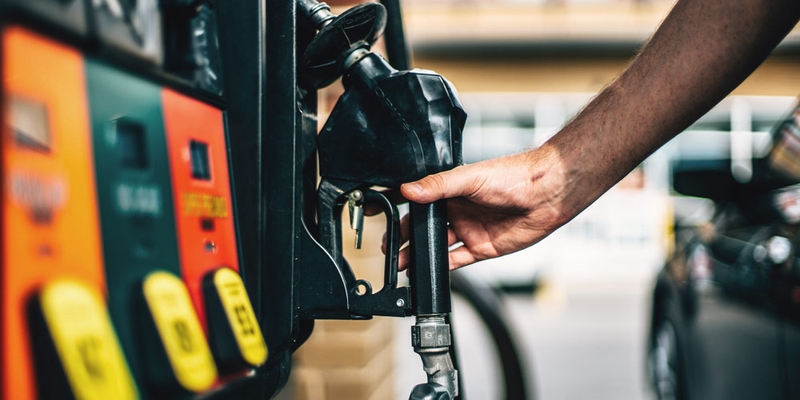
If you are not redirected within 30 seconds, please click here to continue.
Samedi: 10h – 16h HAE

If you are not redirected within 30 seconds, please click here to continue.
If you are not redirected within 30 seconds, please click here to continue.
Gas, diesel, hybrid, electric: most and least expensive vehicles to insure in Canada by fuel type in 2022

Table of Contents
Despite the trickle-down effect of inflation on everyday costs, consumers are still expected to increase their spending on large purchases, like a vehicle, by 10% over the next three months. And though financing a car is a large debt to take on, the cost of insurance often gets overlooked.
Auto insurance is an ongoing cost — much like fuel — that has to be factored into your monthly budget. And when it comes to different vehicle models, not all insurance premiums are created equal. There are a lot of factors that determine your risk profile as a policyholder, starting with the car itself.
Your vehicle make and model is generally the top factor that affects your auto insurance rate, so comparing car insurance quotes for vehicles with your desired fuel type — be it gasoline, diesel, hybrid, or electric — is a good place to start when deciding which new or used car is best for you. And with more insurance companies getting their rate increases approved this year, rate comparison is crucial if you’re looking to cut costs, regardless of where your vehicle falls on the insurance affordability scale.
To help illustrate the type of everyday models that may run you a higher versus lower auto insurance premium, we used the RATESDOTCA auto insurance quoter to find the most and least affordable vehicles to insure in 2022 within each fuel type category, along with their estimated annual fuel cost*. In cases where we could not find fuel costs for the exact model listed, we selected the closest model available in the corresponding Natural Resources Canada Fuel Consumption Guide. For this reason, some variation in the numbers should be expected.

Gas vehicles: most and least expensive to insure in 2022
- Most expensive: 2022 BMW M340i xDrive 4DR AWD — $231.75/month
- Estimated annual fuel cost: $2,024
- Least expensive: 2017 JEEP PATRIOT SPORT 4DR 2WD — $154.92/month
- Estimated annual fuel cost: $1,860
Although gas-powered vehicles are typically more affordable to purchase, they can often cost the same amount, if not more, to insure than other fuel types. On top of that, the amount you’ll spend on gas annually will increase your expenditure substantially.
It’s no surprise to see a newer BMW on top. Luxury auto parts cost more to replace in the event of a vehicle repair and must be factored into your premium. Because of this, “luxury vehicles are often more frequently targeted by thieves for parts and full vehicle thefts,” says Kelsey Hawke, RATESDOTCA auto insurance expert.
The risk of vehicle theft alone can have a negative impact on your Canadian Loss Experience Automobile Rating (CLEAR), a system based on claims data that helps insurance providers gauge the likelihood of a vehicle model being involved in a claim and how much it will cost. Plus, “BMWs require specialty imported parts or specialized mechanics to fix them — driving up costs of claims, which can also impact the CLEAR rating and thus resulting premiums,” says Hawke. Ultimately, a higher CLEAR system rating can lead to a more expensive premium.
On the other hand, the Jeep Patriot is a small SUV, offering increased safety over a sedan or hatchback, and “it’s not as affordable as some more economical brands,” says Hawke. “There are fewer of these vehicles on the road, and a safer vehicle with less road presence is going to result in fewer claims and keep premiums lower.”
Diesel vehicles: most and least expensive to insure in 2022
- Most expensive: 2020 LAND ROVER RANGE ROVER SPORT HSE TD6 4DR AWD — $256.67/month
- Estimated annual fuel cost: $2,496
- Least expensive: 2017 JEEP GRAND CHEROKEE OVERLAND 4DR 4WD DIESEL — $201.42/month
- Estimated annual fuel cost: $2,102
Depending on the model, diesel vehicles can be pricier on all fronts: to purchase, to insure, and to fuel. The engines can be largely to blame for that. However, while diesel fuel may cost more, the vehicle itself can be more fuel-efficient than a gasoline car, which may offer some relief depending on how many kilometres you drive annually.
It’s important to consider whether the benefits of a diesel car — engine performance, lower fuel emissions, and less maintenance — are worth the higher cost to insure.
“Diesel powered vehicles, as a general rule, often are more expensive to insure simply due to the cost of the parts and labour to repair,” says Hawke, “which are often higher than those of gas-powered vehicles.”
Electric vehicles: most and least expensive to insure in 2022
- Most expensive: 2017 TESLA MODEL S 60D 4DR AWD — $200.42/month
- Estimated annual charging cost: $525
- Least: 2019 KIA NIRO EV EX 5DR - $165.92/month
- Estimated annual charging cost: $484
More Canadians are considering trading in for electric vehicles (EVs) to avoid the high cost of gas and diesel fuel. In fact, that’s one of the biggest advantages they offer. Though EVs are typically more expensive to purchase outright, the long-term savings on fuel can be well worth the investment.
It’s becoming more common to see Tesla models out on the road, and though many assume their insurance and charging costs match their purchase price, that’s not necessarily the case. When you consider the low annual charging cost of a Tesla, financing one may even be an option for you at a lower insurance cost than a gas-powered car. For example, the most expensive gas premium is roughly $30 more than the most expensive electric vehicle premium. However, some EVs can be more expensive to insure depending on the model. Fortunately, you can compare EV insurance rates to make sure you’re getting the lowest premium possible. Plus, some insurance providers offer discounts of around 10% for insuring a green vehicle.
“Given Tesla is the most-known electric vehicle brand, and the cost to repair and replace these vehicles is high, as you need to obtain Tesla-specific parts and a Tesla-certified mechanic, it makes sense that a higher-end model is the costliest,” says Hawke.
The Kia Niro EV, on the other hand, offers a more affordable insurance premium given that the brand isn’t as popular for their EVs compared to Tesla, says Hawke. “There are likely not as many of these vehicles on the road, so the cost to repair would not be as high.”
Hybrid vehicles: most and least expensive to insure in 2022
- Most expensive: 2018 HYUNDAI SONATA GL HYBRID 4DR — $210.92/month
- Estimated annual fuel cost: $1,163
- Least expensive: 2020 KIA NIRO L HYBRID 5DR — $167.75/month
- Estimated annual fuel cost: $884
Hybrid vehicles are a great transitionary option for those who are on the fence about going fully electric. They cost around the same to insure as gas-powered vehicles, and less to fuel.
Though both the most and least expensive hybrids to insure above are base trim models, the Hyundai Sonata is a sedan while the Kia Niro is an SUV, offering more strength and durability in a collision. This could be helping it rank lower in terms of insurance costs.
"The Hyundai is a very popular vehicle on the road given its affordability,” adds Hawke, which could contribute to a greater frequency of claims. However, “the Kia is still the more affordable option, and it’s cheaper to repair and replace.”
Where are auto insurance premiums headed in 2023?
While insurance providers were offering lower rates and rebates during COVID-19, many insurance companies have had rate increases approved by the Financial Services Regulatory Authority of Ontario (FSRA) and other provincial insurance regulators in Canada.
“As rate approvals start to come in, there is a trend toward increasing auto insurance premiums into 2023,” says Hawke. “Given the amount of time needed for rate approvals, there could still be insurance providers going through the rate filing process with FSRA, or actuaries working to determine what rate increase is required for them to file for.”
Therefore, it’s a good idea to keep an eye on FSRA’s private passenger automobile insurance rate approvals to determine if your company is enacting a rate change, by how much, and when its renewal date takes effect. If your rate is — or will be — higher than you’d like it, it’s time to compare auto insurance rates.
*All estimated annual fuel costs are based on the corresponding Natural Resources Canada Fuel Consumption Guide associated with each vehicle model year, or the next closest guide year that said model is featured in. This includes guides from 2020, 2019, and 2017.
Interested in creating content with RATESDOTCA? Reach us at email@rates.ca.
Methodology
- Number of vehicles: 1
- Number of drivers: 1
- Clean driving record (no collisions, suspensions, or traffic tickets)
- Age: 35
- Gender: Male
- Lives in the M6H 1X1 postal code of Toronto, Ont.
- Listed on an insurance policy for 19 years (since he was 16 years old)
- With current insurance company for two years
- Collision and comprehensive coverage
- Vehicle: financed
- Parked: private driveway
- Drives five kilometres to and from work daily (10,000 kilometres annually)
- Personal use
- Winter tires
- Did not opt for any discounts related to telematics or bundling
Don't waste time calling around for auto insurance
Use RATESDOTCA to shop around, and compare multiple quotes at the same time.
Get money-saving tips in your inbox.
Stay on top of personal finance tips from our money experts!









